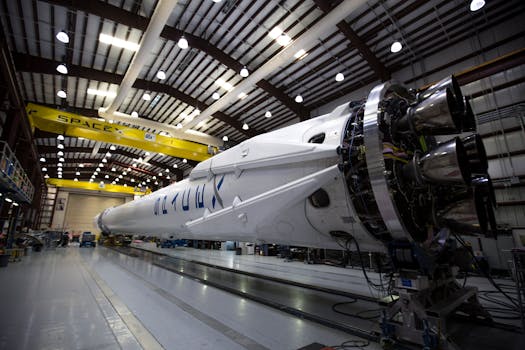
The Future of Satellites: Advancements and Innovations
Future of satellites is an exciting and rapidly evolving field, with new technologies and innovations emerging every year. The satellite industry has come a long way since the launch of the first artificial satellite, Sputnik, in 1957. Today, satellites play a crucial role in our daily lives, from providing communication services to enabling navigation and weather forecasting.
The future of satellites is expected to be shaped by several key trends and technologies, including the development of smaller and more affordable satellites, the rise of satellite constellations, and the increasing use of artificial intelligence and machine learning in satellite operations. Additionally, the growth of the satellite industry is expected to be driven by the increasing demand for satellite-based services, such as broadband internet and Earth observation.
Advancements in Satellite Technology
One of the most significant advancements in satellite technology is the development of smaller and more affordable satellites. Traditionally, satellites have been large and expensive, making them accessible only to governments and large corporations. However, the development of smaller satellites, such as CubeSats and nanosatellites, has made it possible for smaller companies and even individuals to launch their own satellites.
Another significant advancement in satellite technology is the development of satellite constellations. A satellite constellation is a network of satellites that work together to provide a specific service, such as broadband internet or Earth observation. Satellite constellations have several advantages over traditional satellite systems, including improved coverage and increased capacity.
Innovations in Space Exploration
Innovations in space exploration are also expected to shape the future of satellites. For example, the development of reusable launch vehicles, such as those being developed by SpaceX and Blue Origin, is expected to significantly reduce the cost of launching satellites into space. Additionally, the development of new propulsion systems, such as ion engines and nuclear propulsion, is expected to enable satellites to travel farther and faster than ever before.
The use of artificial intelligence and machine learning in satellite operations is also expected to increase in the future. AI and ML can be used to analyze large amounts of data from satellites, such as images and sensor readings, and to make predictions about future events, such as weather patterns and natural disasters. Additionally, AI and ML can be used to optimize satellite operations, such as scheduling and resource allocation.
Challenges and Opportunities
Despite the many advancements and innovations in the satellite industry, there are still several challenges that need to be addressed. One of the biggest challenges is the issue of space debris, which refers to the accumulation of old and broken satellites in Earth’s orbit. Space debris can pose a significant threat to operational satellites and other spacecraft, and it is essential to develop strategies for removing or mitigating it.
Another challenge facing the satellite industry is the issue of regulatory frameworks. The use of satellites is regulated by a complex system of international laws and agreements, which can be confusing and difficult to navigate. It is essential to develop clearer and more consistent regulatory frameworks to support the growth of the satellite industry.
Despite these challenges, the future of satellites looks bright. The satellite industry is expected to continue to grow and evolve, driven by advancements in technology and innovations in space exploration. As the industry continues to expand, we can expect to see new and exciting developments, such as the establishment of permanent human settlements on the Moon and Mars, and the use of satellites to explore and understand the universe.







